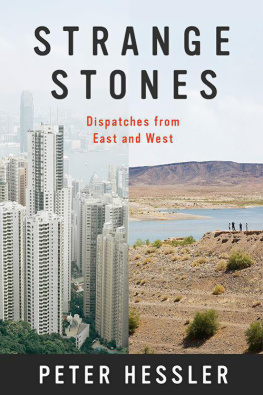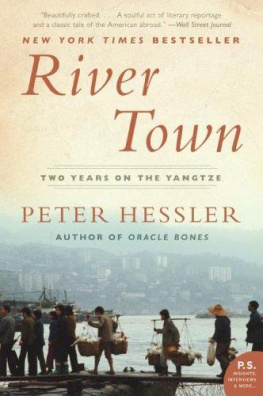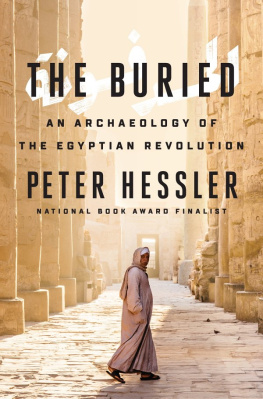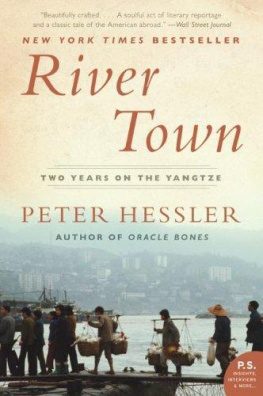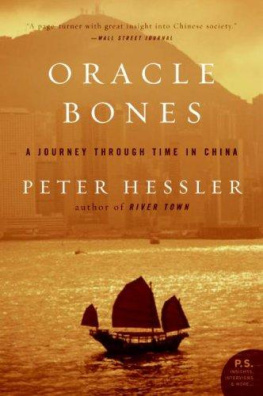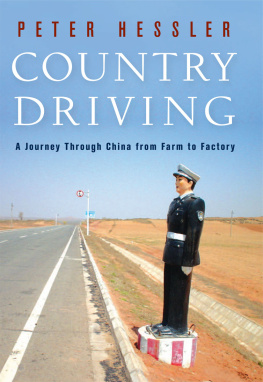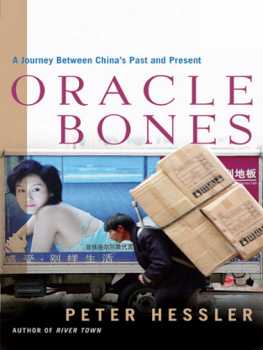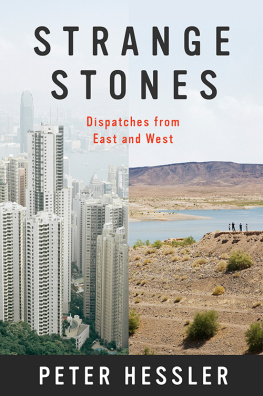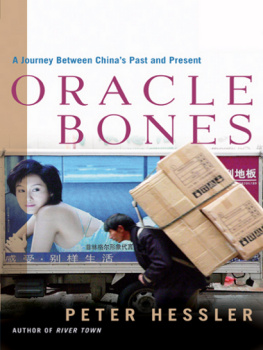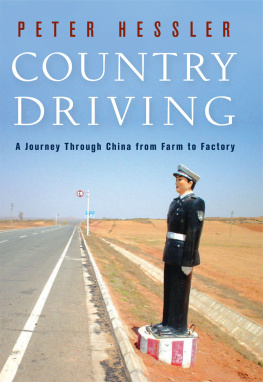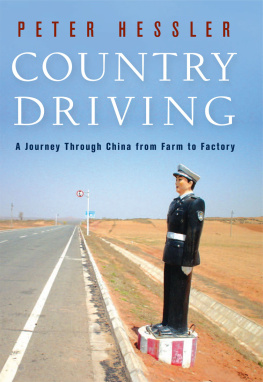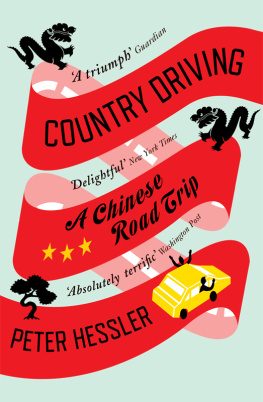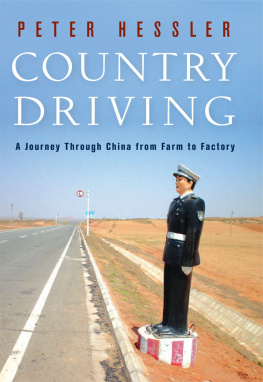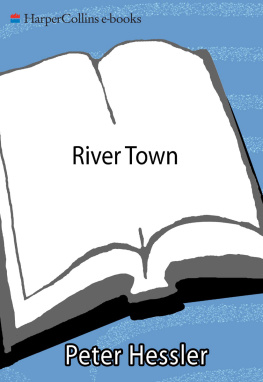Peter Hessler - Strange Stones Dispatches from East and West
Here you can read online Peter Hessler - Strange Stones Dispatches from East and West full text of the book (entire story) in english for free. Download pdf and epub, get meaning, cover and reviews about this ebook. year: 2013, publisher: HarperCollins, genre: Detective and thriller. Description of the work, (preface) as well as reviews are available. Best literature library LitArk.com created for fans of good reading and offers a wide selection of genres:
Romance novel
Science fiction
Adventure
Detective
Science
History
Home and family
Prose
Art
Politics
Computer
Non-fiction
Religion
Business
Children
Humor
Choose a favorite category and find really read worthwhile books. Enjoy immersion in the world of imagination, feel the emotions of the characters or learn something new for yourself, make an fascinating discovery.
- Book:Strange Stones Dispatches from East and West
- Author:
- Publisher:HarperCollins
- Genre:
- Year:2013
- Rating:3 / 5
- Favourites:Add to favourites
- Your mark:
- 60
- 1
- 2
- 3
- 4
- 5
Strange Stones Dispatches from East and West: summary, description and annotation
We offer to read an annotation, description, summary or preface (depends on what the author of the book "Strange Stones Dispatches from East and West" wrote himself). If you haven't found the necessary information about the book — write in the comments, we will try to find it.
Strange Stones Dispatches from East and West — read online for free the complete book (whole text) full work
Below is the text of the book, divided by pages. System saving the place of the last page read, allows you to conveniently read the book "Strange Stones Dispatches from East and West" online for free, without having to search again every time where you left off. Put a bookmark, and you can go to the page where you finished reading at any time.
Font size:
Interval:
Bookmark:
Strange Stones
Dispatches from East and West
Peter Hessler

For John McPhee
Contents
W hen I was growing up, my father occasionally brought his kids along to interviews. He was a medical sociologist at the University of Missouri, and his work took him to places that seemed exotic to me and my sisters: prisons, mental institutions, rural health clinics. Once, he met with the scion of an extended family that lived in the Mark Twain National Forest, deep in the Ozarks, where the clan was notorious for exerting heavy-handed control over surrounding hamlets. The old mans name was Elijah, and during the interview he sat next to an open window with a .22 rifle in his lap, in case a squirrel entered the conversation. He was eighty years old. When my father asked if there was a local drug problem, Elijah nodded seriously. Yes, we do have a drug problem, he said. Theres no drugstore down here. If we need something, we have to drive all the way to Salem.
Elijah mentioned that a while back he had suffered throat pain so serious that he had trouble eating even watermelon, the local crop. Finally he went to a nearby town and saw a veterinarian, who performed a quick examination and diagnosed polyps. Elijah asked him to remove the growths.
Im sorry, but Im not a medical doctor, the veterinarian said. I cant do that.
Well, mebbe you cant, Elijah said, and mebbe you can.
And that was how it wentmaybe nobody made a direct threat, and maybe Elijah didnt leave that office until the surgery was done.
My father was endlessly fascinated by the people he interviewed. Of course he enjoyed talking to the characters and the crazies, but he also had a deep interest in the quiet ones, the people who went about everyday lives with a sense of routine and decency. Missouri was like a foreign country to him and my mother. Both of them had grown up in Los Angeles, and they never expected to spend most of their lives in the Midwest. But they made it their home; my father spent years researching health care in rural communities, and my mother, a historian, wrote a dissertation about Jewish immigrants in Missouri.
My father can strike up a conversation with anybody. If a workman comes to the house, my father knows his life story by the time the project is finished. Once, a plumber repaired our bathroom, and he got along so well with my father that they still go deer hunting together in northern Missouri. During my childhood, if my father and I happened to be sitting somewhere with nothing to doa bus station, a hotel lobbyhe would pick out an individual and ask me what I noticed about him. Is there anything interesting about the way hes dressed? The way he carries himself? What do you think he does, why do you think hes here?
He had picked up this activity from his teacher in graduate school, a sociologist named Peter Kong-ming New. Peter New grew up in Shanghai but went to college in the United States; after the Communists took over in 1949, he stayed in America. He taught my father at the University of Pittsburgh, and then for a couple of years they worked together at Tufts, in Boston. Peter believed that I had been named after him, and although this wasnt exclusively truemy parents had other friends and relatives with the same nameit was true enough that they didnt disabuse him of the sense of honor. He was an unforgettable presence from my childhood. He stood well over six feet tall, with broad shoulders and a big belly. He had a huge bald head and a face as round as a mooncake. In addition to the way he liked to observe people, he developed a technique that he called creative bumbling. If Peter was in a situation where he needed to get something doneplacate a traffic cop, or get a table at a crowded restauranthe suddenly became a waiguoren , a stranger in a strange land, and invariably people did everything they could to ease this confused and stuttering Chinaman along without further incident. Peter New had a booming voice, and he loved telling stories; like my father, he had the rare combination of being both loquacious and observant. He also had the exiles ability to make himself at home anywhere. That was my first impression of Chinese peopleas a child I assumed they were all massive, charismatic figures. Whenever I heard the word Shanghai, I pictured a city of giants.
Many years later, when I came to live in China, I realized how unusual Peter Kong-ming New really was. It wasnt just his sizeit was the way he talked, the way he observed. Most Chinese tend to be wary of strangers, and there isnt a strong tradition of sociology and anthropology, of taking an interest in communities that are different from your own. In my experience, the Chinese arent natural storytellersthey are often deeply modest, and they dislike being at the center of attention. After I began working as a journalist, I learned to be patient, because it often took months or even years to get a person to talk freely. I remembered my fathers approachif you want to truly understand somebody, you cant become bored or impatient, and the everyday matters as much as the exceptional. And there were many moments in China that called for some creative bumbling on the part of the waiguoren .
D espite these early influences, I didnt plan to become a writer in China. Other than Peter New, I had no link to the region, and in college I never took a course in an Asian subject. My parents werent the type to guide their childrens careers. My father took me and my sisters to his interviews not because he hoped we would follow in his footsteps, but because he believed that life is more interesting if you can step outside of your own world every once in a while. And each sibling was encouraged to follow her own interests. Two of my sisters are married to policemen; one of them teaches, like my mother, and the other was a sociology major who is now a stay-at-home mom. My third sister is a sedimentary geologist.
For many years I hoped to become a fiction writer. To me, it seemed a higher calling than journalism; I loved the language of great novels and the storytellers voice. In college, I majored in creative writing, focusing on short stories, but at the end of my junior year I took a seminar in nonfiction that was taught by John McPhee. He was the most exacting teacher I ever hadthe margins of my papers bristled with comments written in a tight left-handed script. You cant make a silk purse out of this, he wrote next to one bad sentence. When I loaded a phrase with adjectives and clauses, he responded, This could be said with several pebbles removed from the mouth. In one profile, I used the subjects name four times in the span of two sentences, and McPhee wrote: Listen to the characters name thudding like horseshoes. Vary it. Use pronouns here and there. He could be blunt: This sort of thing is irritatingly repetitive. Another comment said simply, This is lame cleverness.
But there were also marks of praiseyes or ah or a fine moment. I realized that its possible to write very well and very badly at the same time, and that the best writers arent necessarily the most gifted but rather the ones who recognize their weaknesses and work hard to improve. By the end of the course I understood that nonfiction writing could be every bit as demanding as the work of a novelist. As time passed, I sensed that the routines of a fiction writer felt too internal for me, especially since I had a tendency toward shyness. I wanted work that forced me out; I needed contact with other lives, other worlds. This instinct inspired me to sign up for the Peace Corps, which sent me to China. But the place itself was almost incidentalall I knew was that if I hoped to become a writer, I should go far from home.
Next pageFont size:
Interval:
Bookmark:
Similar books «Strange Stones Dispatches from East and West»
Look at similar books to Strange Stones Dispatches from East and West. We have selected literature similar in name and meaning in the hope of providing readers with more options to find new, interesting, not yet read works.
Discussion, reviews of the book Strange Stones Dispatches from East and West and just readers' own opinions. Leave your comments, write what you think about the work, its meaning or the main characters. Specify what exactly you liked and what you didn't like, and why you think so.

